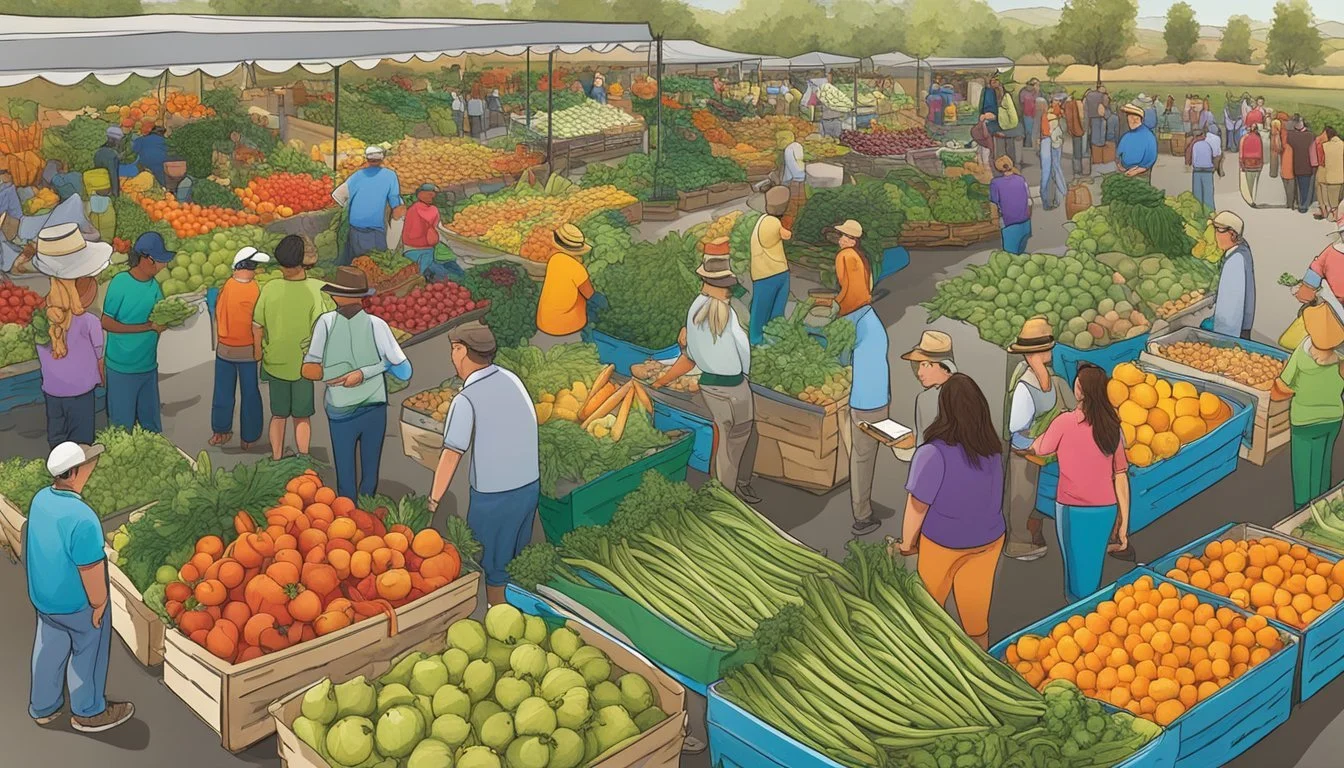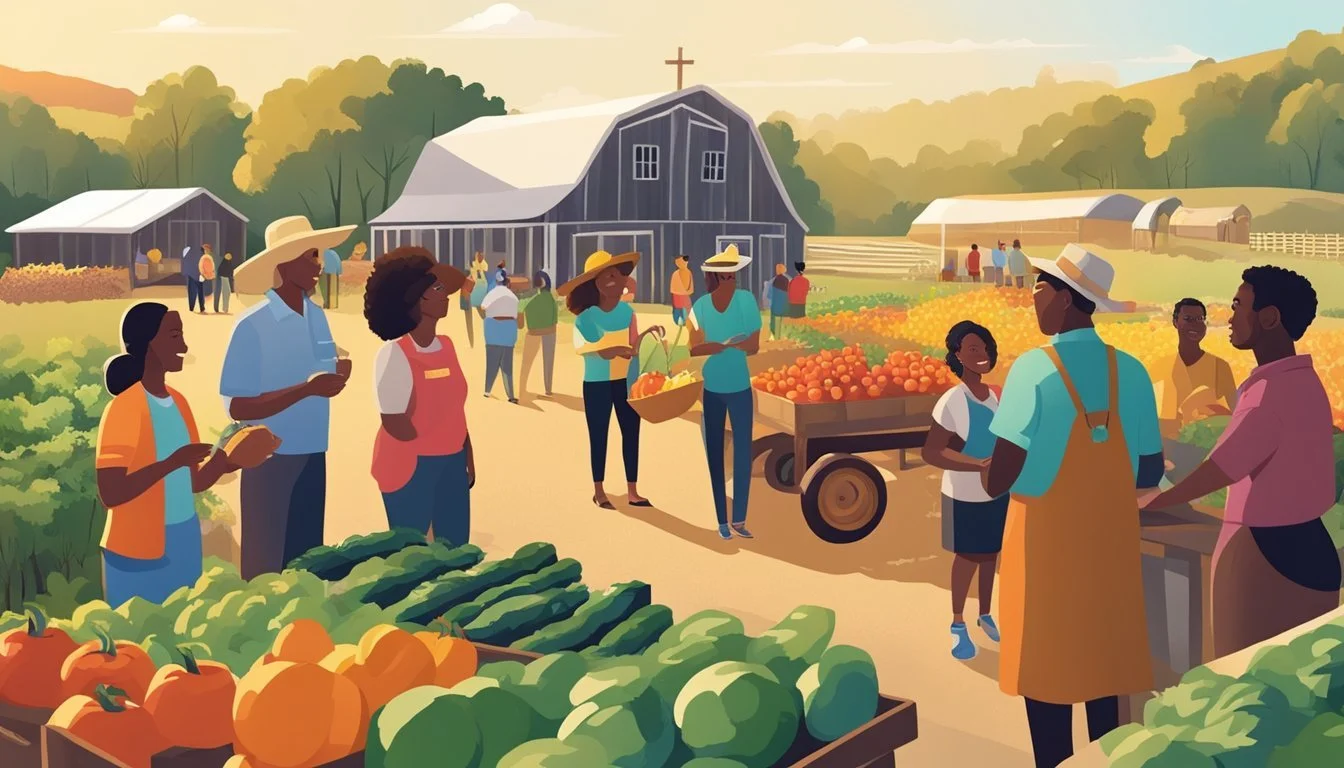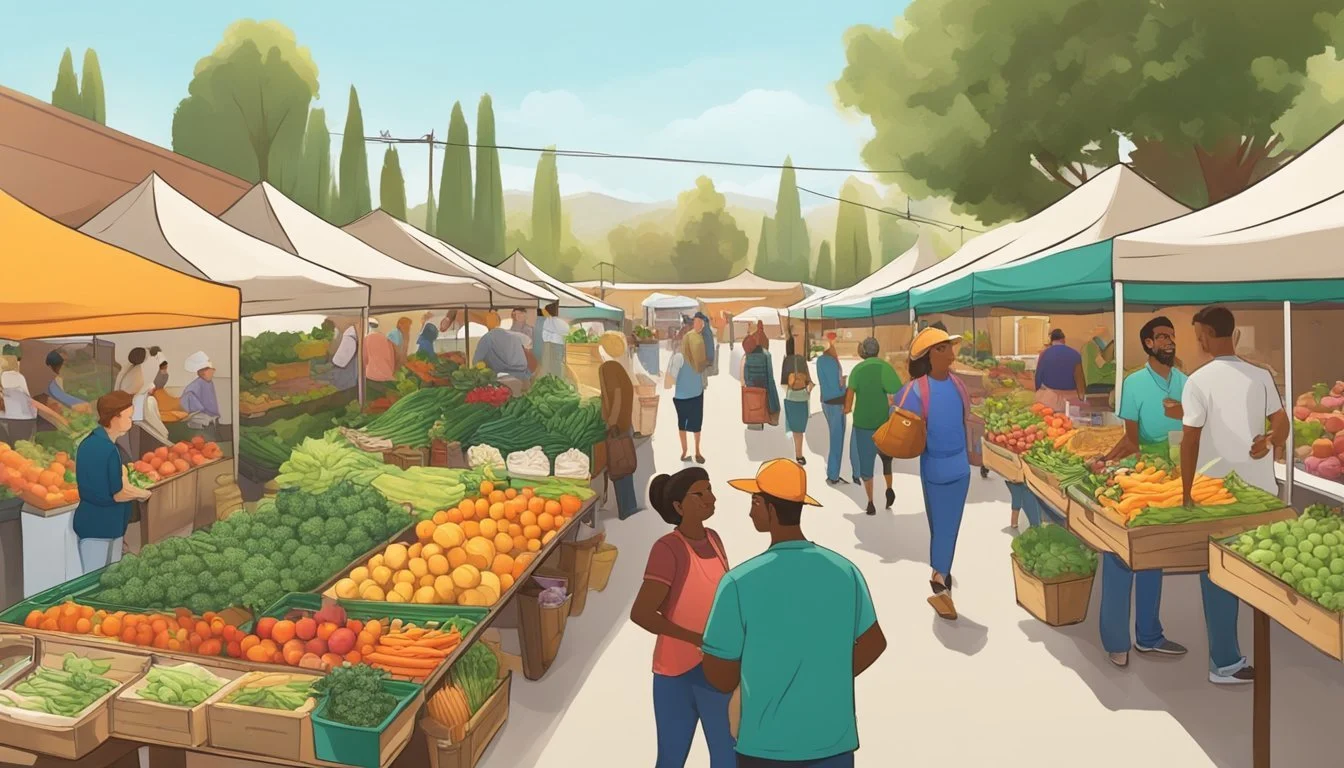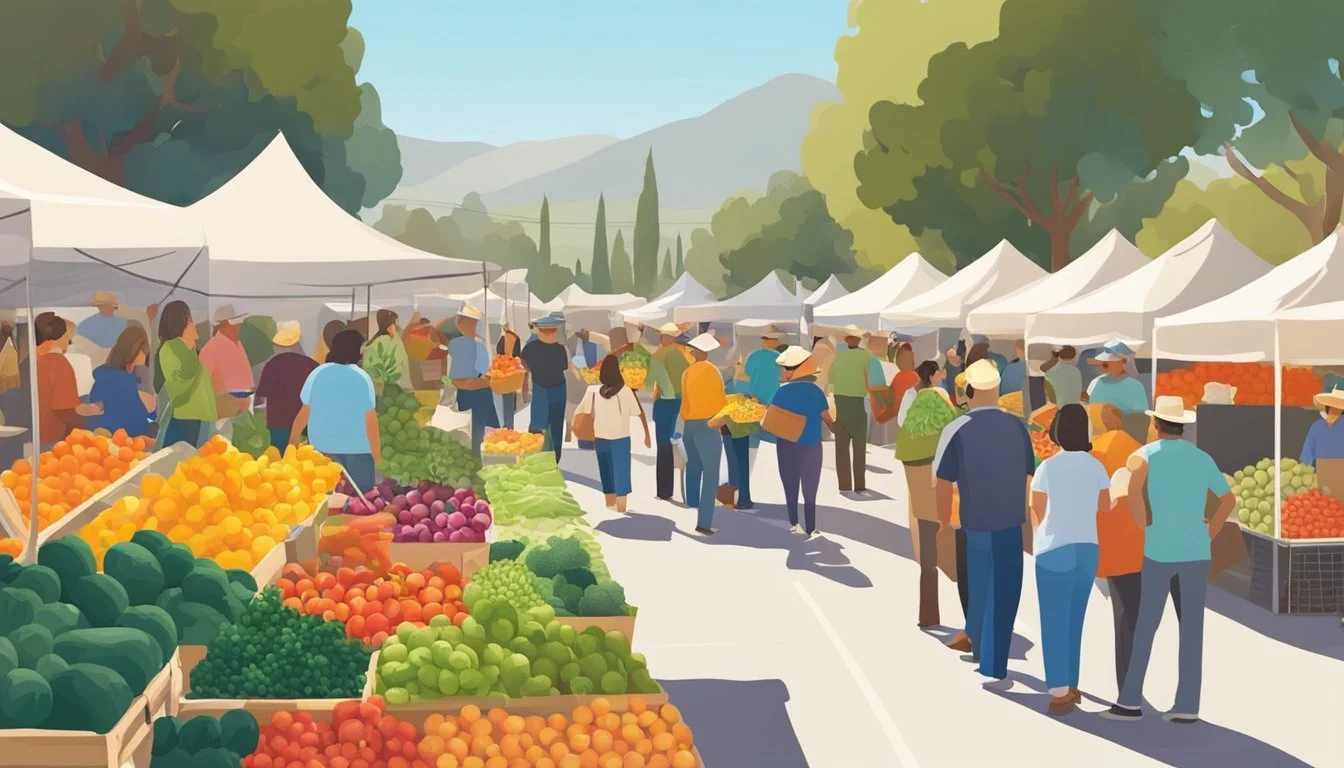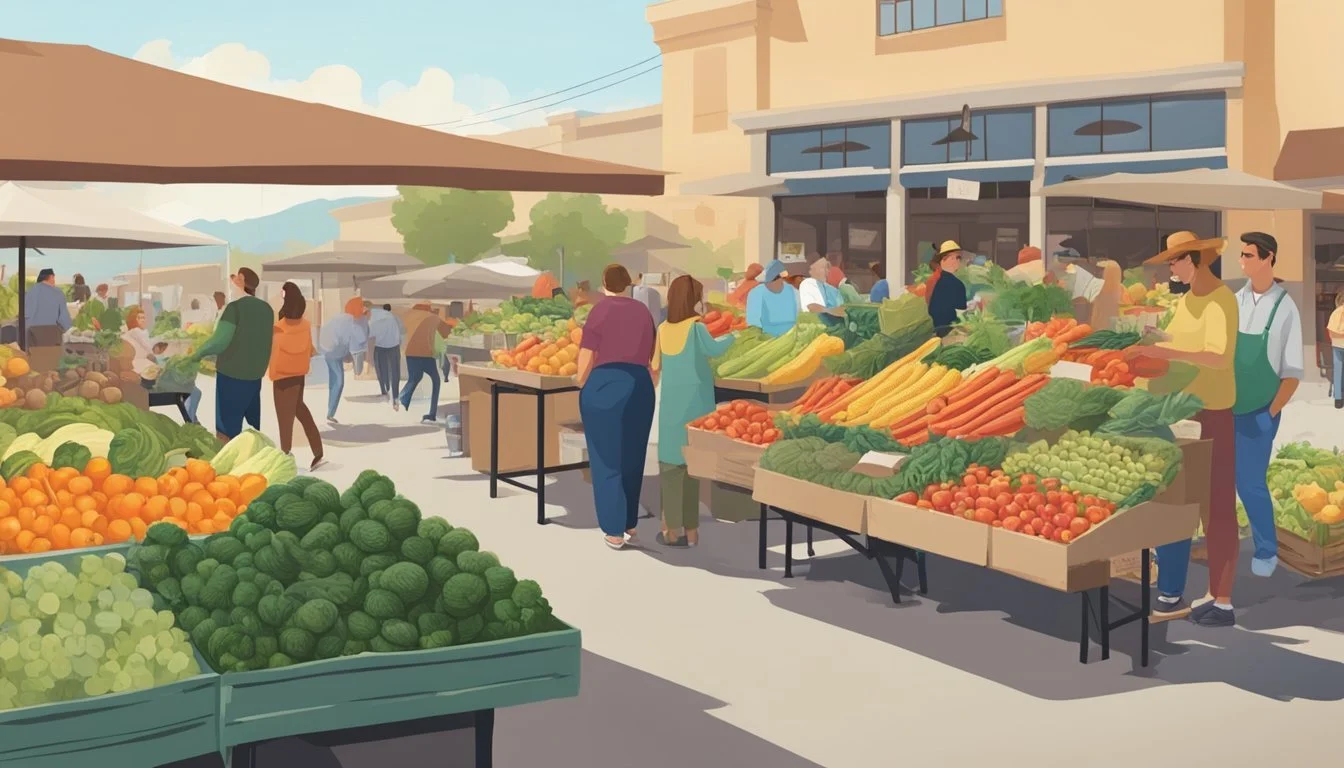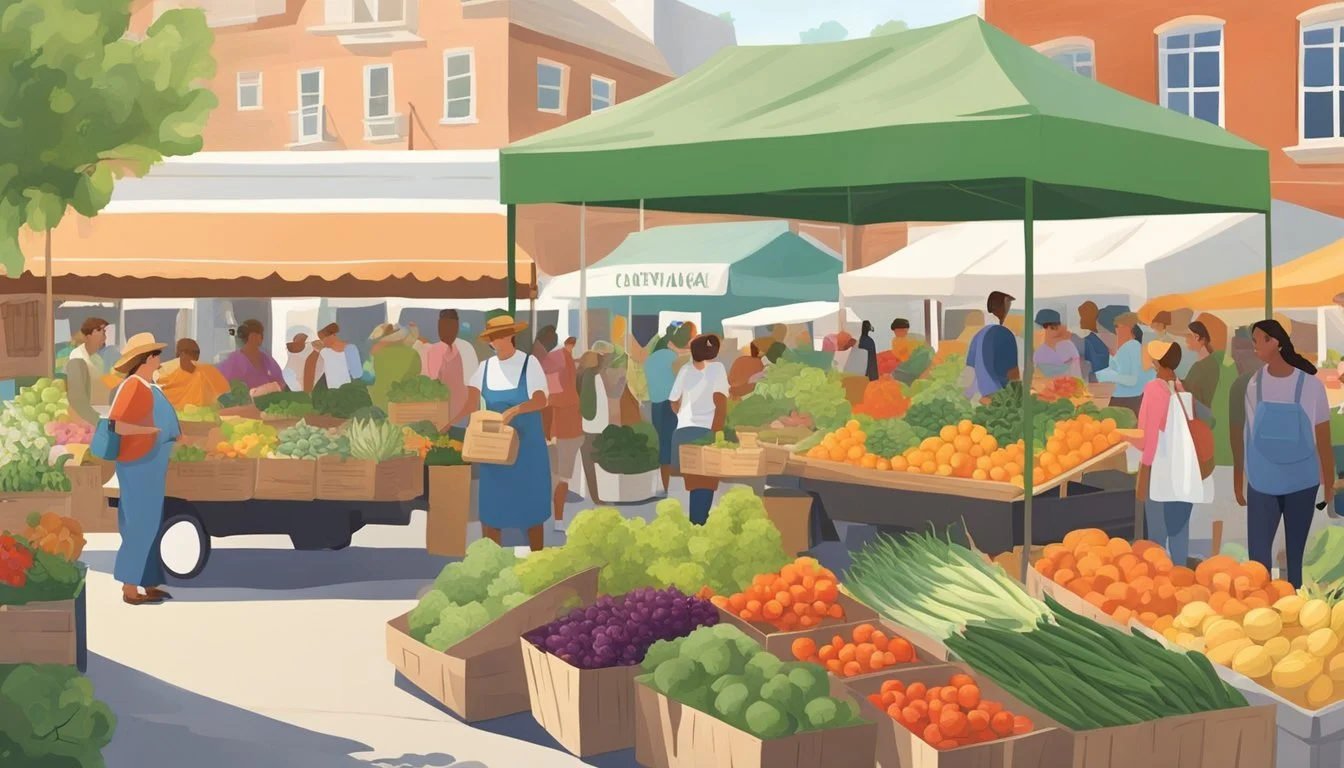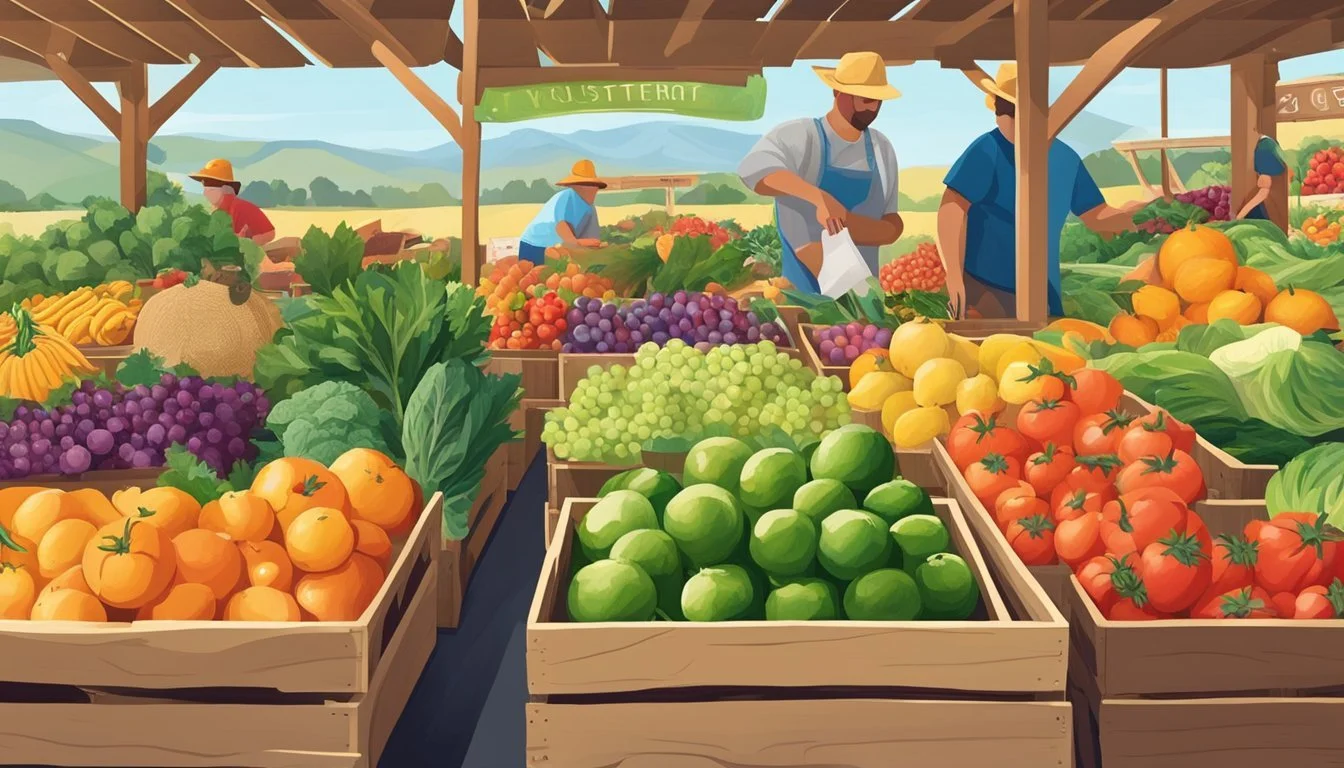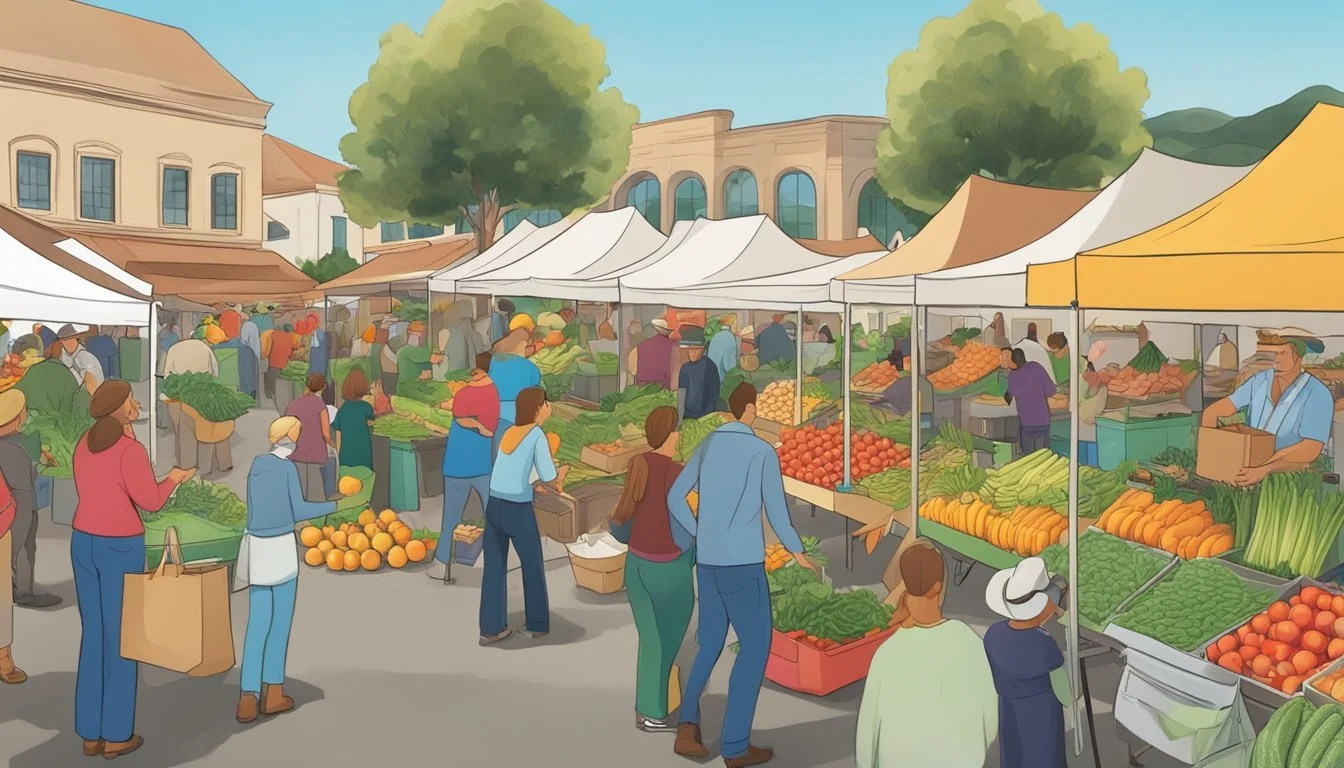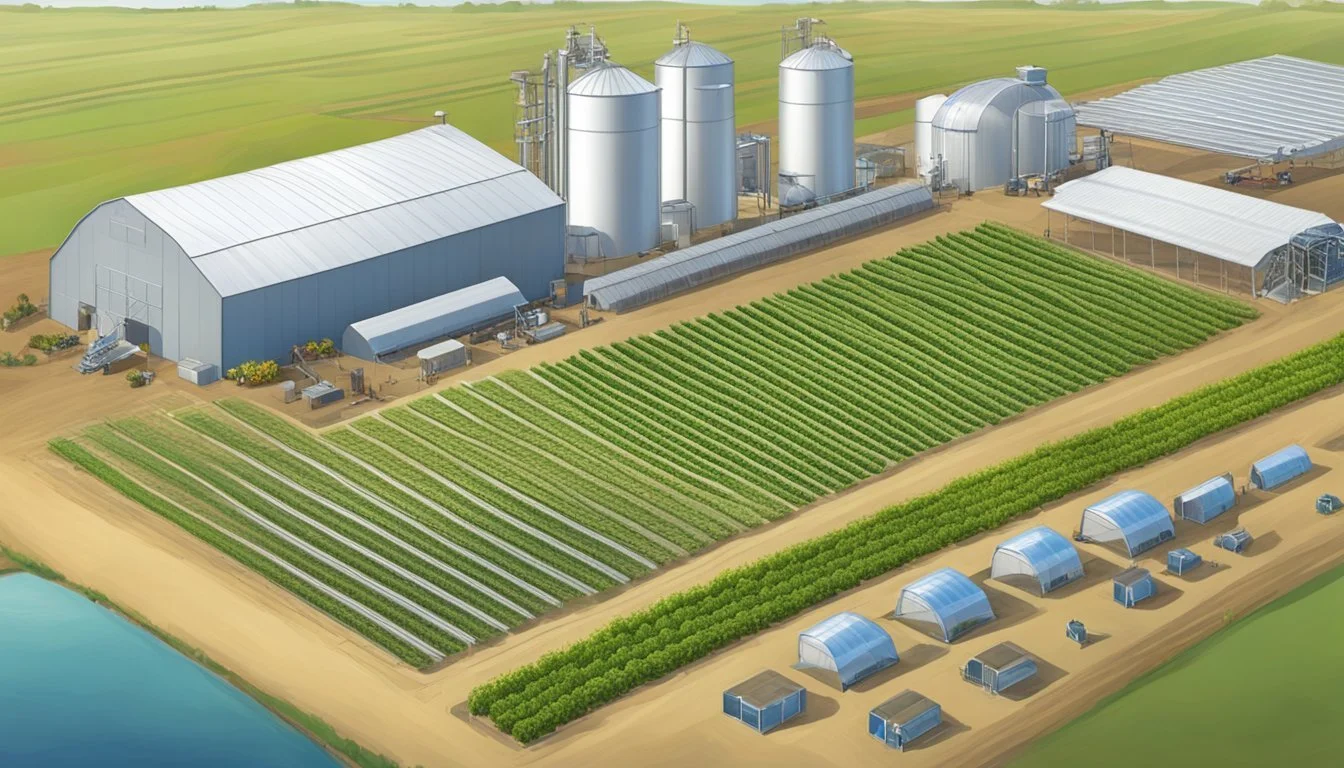Community Supported Agriculture (CSA) in Murrieta, CA
A Guide to Local Farm Partnerships
Community Supported Agriculture, commonly known as CSA, has taken root in Murrieta, California, blending the agrarian tradition with modern consumer needs. This agricultural model fosters a partnership between consumers and local farmers, where members subscribe to receive a seasonal share of produce directly from nearby farms. In the scenic Inland Empire region, CSA programs are notable for their collaboration among multiple certified organic farms. These include Menos Farms in Riverside, Moonrise Farms in Murrieta, and De Luz Farms and Nursery in Temecula, providing fresh, nutrient-dense produce to their members.
The principle behind CSA in Murrieta is to create a symbiotic relationship where the community supports agriculturalists, ensuring food security and sustainability. In exchange, consumers receive fresh, locally-grown fruits and vegetables, often harvested at their peak ripeness, promoting healthier eating patterns and a more intimate knowledge of where one's food originates. Additional offerings from these CSAs can include pasture-raised eggs, free-range beef, and pastured pork, further branching into a holistic approach to local agriculture.
Embracing CSA in Murrieta represents not just a consumer choice but a commitment to bolstering a resilient local food system. CSAs in the area are distinguished by the unique microclimates of their collective farms, which enables a diverse, year-round production of crop varieties. This interconnected network of farms and consumers exemplifies a dynamic food-sharing community dedicated to the principles of eco-conscious farming and the nurturing of a localized, sustainable food supply chain.
Benefits of CSA in Community
Community Supported Agriculture (CSA) in Murrieta is a pillar of support for both the local economy and the health and nutrition of the community members. By participating in CSAs, residents directly invest in their local food system, gaining access to fresh, often organic produce, while ensuring farmers have a reliable market.
Fostering Local Economy
When community members engage with CSAs, they infuse capital directly into local farms. This economic model benefits local farmers, such as those in Temecula and De Luz Farms and Nursery, by providing them with upfront seasonal funding, which helps stabilize farm income and allows for better planning and resource allocation. The involvement of several local farms, including Moonrise Farms in Murrieta, not only bolsters the variety within the CSA but also creates a network of agricultural resilience.
Direct impact: Money spent on CSAs stays within the community, supporting local jobs and farming.
Sustainable practices: Encourages environmentally responsible farming, as many CSA farms employ organic methods.
Boosting Health and Nutrition
CSA participants typically receive a bounty of fresh produce harvested at peak ripeness, which maximizes both flavor and nutritional value. The regular supply of vegetables, fruits, herbs, and sometimes additional farm products like eggs or honey, encourages healthier eating habits. The diversity of offerings in CSA shares helps expand dietary variety and introduce members to new produce items, prompting a more balanced diet.
Nutrient-rich: Fresh, locally grown produce often retains more nutrients than products shipped over long distances.
Educational: Exposure to seasonal, local food through CSAs can enhance community knowledge about nutrition and sustainable agriculture.
By providing an essential linkage between local farms and residents, CSAs like those in the Murrieta area strengthen community ties, promote economic stability, and contribute to the overall health and well-being of the region.
Understanding CSA
Community Supported Agriculture represents a crucial link between local farms and community members. By becoming a member and purchasing a share, individuals receive a regular supply of fresh, seasonal produce directly from local farms.
CSA Model Explained
In a Community Supported Agriculture (CSA) model, individuals purchase a share from a farm at the onset of the growing season. This financial support helps the farm cover the initial annual costs of seeds and equipment. In return for their investment, members receive a weekly or bi-weekly box of fresh produce during the season. This exchange fosters a partnership where both the farmer and consumer share the risks and benefits of food production.
How CSAs Work in Murrieta
In Murrieta, CA, the CSA model is adopted by local farms such as Moonrise Farms and De Luz Farms and Nursery, offering shares of their harvest to members. The collective strategy in Murrieta involves several farms, enhancing the variety of produce available to CSA members. With this unique grouping, a wider selection of fruits and vegetables is produced and provided throughout the year, ensuring members enjoy a diverse range of local, organic options.
How to Participate
Engaging in a CSA in Murrieta, CA, involves a straightforward membership process, after which individuals can select from a variety of produce shares according to their needs.
CSA Membership Process
One becomes a member of a CSA by signing up through the CSA's official channels, which could be online platforms, local markets, or direct contact with the farms. Prospective members are typically required to complete a membership form to provide their contact and payment information. Each CSA has specific deadlines and membership caps, making timely sign-ups essential. Membership often requires an upfront payment to cover the season's produce, thereby supporting the farming operations.
Selection of Shares
After signing up for membership, individuals can select their shares based on the options provided by the CSA. Shares generally consist of a box of vegetables, but may also include fruits, eggs, meat, or dairy. The contents of the boxes vary by season and are dependent on farm production. Members can usually choose from different sizes or types of shares to suit their household needs:
Single Share: Ideal for individuals or small families.
Family Share: Larger quantity for families or those who consume more produce.
The selected share type determines the amount of produce one will receive on a regular schedule, such as weekly or bi-weekly, throughout the farming season.
Murrieta's Top CSA Farms
The landscape of Murrieta, CA, is home to top-notch CSAs where local farms offer a variety of locally grown, certified organic produce. These farms are renowned for their commitment to regenerative practices and organic standards, contributing to the health of the community and the environment.
Menos Farms Features
Menos Farms, located in nearby Riverside, is known for its participation in regional Community Supported Agriculture (CSA). The farm specializes in:
A variety of certified organic produce.
Commitment to sustainable farming practices.
Moonrise Farms Offerings
Moonrise Farms brings to the CSA community in Murrieta:
Specially curated seasonal selections of produce.
Their offerings boast a wide array of crops due to the unique climate and keen agricultural practices.
De Luz Farms and Nursery Specialties
At De Luz Farms and Nursery in Temecula, one will find:
An emphasis on regenerative farming practices.
A diverse range of plants and produce that are not only healthful but also environmentally conscious.
Seasonal Produce Variety
Community Supported Agriculture (CSA) in Murrieta, CA, thrives on providing a diverse range of fresh, seasonal produce. The collaborative efforts of local farms ensure a year-round supply of both common and unique produce, with a strong emphasis on organic and certified offerings.
Fruits and Vegetables
Local farms in Murrieta, such as Moonrise Farms, cultivate a wide array of seasonal fruits and vegetables. The shifting seasons herald a rotating selection, with exotic citrus fruits in the winter months and avocados coming into season during spring. Summer ushers in stone fruits and a vibrant assortment of tomatoes, and fall welcomes root vegetables and hardy greens.
Organic and Certifications
The farms contributing to Murrieta's CSA model often prioritize sustainable and eco-friendly practices. Many are certified organic, ensuring that the produce is grown without the use of chemical pesticides, fungicides, or herbicides. This commitment to organic farming not only promotes health for consumers but also protects the environment.
Unique Local Products
Alongside the usual seasonal staples, Murrieta's CSAs offer a variety of unique local products. Among these, the region is known for cultivating specialty items such as dragon fruit and various herbs that reflect the agricultural diversity of the area. These products frequently become favorites for those looking to expand their culinary palette with fresh, local flavors.
Sustainability and Farming Practices
Community Supported Agriculture (CSA) in Murrieta, CA, actively integrates sustainable practices to ensure environmental health and food quality. CSA farms emphasize soil management and use organic farming techniques to boost ecosystem and community resilience.
Organic Farming Techniques
Organic farming is at the core of CSA operations in Murrieta. These farms avoid synthetic pesticides and herbicides, instead relying on organic practices such as crop rotation, natural pest predators, and resistant strains to maintain plant health. Fertilization is sourced from organic materials, including compost, worm castings, and kelp. This holistic approach supports biodiversity and reduces the chemical load on the environment.
Soil Fertility and Amendments
Maintaining soil fertility is essential for the success of CSA farms. They often use compost to enhance soil structure and water retention. Amendments like rock phosphate and green sand supply essential nutrients such as phosphorus and potassium. These farms may also employ cover cropping to enrich the soil, prevent erosion, and suppress weeds, truly embodying principles of a regenerative farm. By nourishing the land with natural amendments and focusing on soil health, CSA farms in Murrieta support long-term agricultural sustainability.
CSA Logistics
Community Supported Agriculture in Murrieta ensures that customers receive fresh, locally-sourced produce through a streamlined logistics process. CSA members can typically expect regular deliveries based on their subscription details.
Delivery Options
CSA programs in Murrieta offer a range of delivery options to accommodate the needs of their members. Customers can often choose between:
Home Delivery: Direct delivery to the customer's residence, ensuring convenience and freshness.
Pick-Up Locations: Strategically selected sites where customers can collect their shares, such as farmers markets or specific drop-off points.
Some CSAs in the Murrieta area collaborate with multiple farms, like Menos Farms, Moonrise Farms, and De Luz Farms and Nursery, offering a unique fusion of offerings in each delivery.
Customer Relations
Effective customer relations are crucial for the success of a CSA. Key aspects include:
Clear Communication: Updates about delivery schedules, seasonal produce availability, and subscription options are communicated to members regularly.
Customer Service: CSA operators typically provide robust support to address any concerns or questions from their members, ensuring a satisfactory experience with their subscription service.
CSAs are invested in building a robust community around local agriculture, promoting direct engagement between farmers and consumers.
Additional Benefits and Services
Community Supported Agriculture (CSA) programs in Murrieta, California, extend beyond just supplying fresh produce to their members. They play an integral role in fostering a stronger connection between the community and local agriculture through various beneficial initiatives.
Community Events and Education
CSAs in Murrieta often host community events aimed at providing education on sustainable farming practices and the importance of supporting local agriculture. This can include workshops on organic farming, cooking classes featuring seasonal produce, and programs designed to teach children about the origins of their food.
Morning Song Farm: Known for its diverse selection of fruits and herbs, it frequently invites members to participate in educational tours and offers goat care workshops, which are a unique way to learn about farm life.
Seasonal Workshops: Regularly scheduled events that cover topics ranging from composting to plant propagation.
Farmstay and Agrotourism Opportunities
Some farms in the CSA network offer a farmstay experience, merging agriculture with tourism. Visitors have the chance to stay on the farm, partaking in daily activities to get a hands-on understanding of farm operations.
Accommodations: Options often include rustic cottages or modern units, some equipped with private hot tubs for relaxation after a day in the fields.
Animal Interaction: Stays provide interaction with farm animals like goats and alpacas — a hit with families and animal lovers alike.
Agrotourism Activities: Guests can engage in picking their own produce or learn about the process from sowing to harvesting.
Pricing and Seasonal Cycles
Community Supported Agriculture (CSA) programs in Murrieta, CA, follow a structured pricing strategy based on the seasonal cycles of produce availability. Consumers should understand that prices reflect the costs associated with growing and harvesting crops, especially as they vary by season.
Cost Analysis
Consumers purchase shares in a CSA, which entitles them to a portion of the harvest throughout the season. In Murrieta and surrounding regions, such as Temecula and Riverside, the prices for these shares can range significantly. For a general reference, CSA share prices in similar regions have been noted to range between $300 to $600. These costs may fluctuate based on several factors:
The variety and quantity of produce offered.
The length of the subscription period.
Organic certification status of the farms involved.
It is also common for CSAs to offer different sizes of shares—single, small family, and large family—to cater to different household needs.
Understanding Seasonal Availability
CSA participants receive a diverse array of produce corresponding with the seasonal cycles of farming. Consumers should expect a shift in the types of produce as the seasons change. For example, in the fall, one could anticipate seasonal crops like squashes and root vegetables. Here are some typical characteristics of seasonal produce availability in Murrieta:
Spring: Tender leafy vegetables and early-season crops.
Summer: A variety of fruits, such as stone fruits, alongside vegetables like tomatoes and peppers.
Fall: Hearty vegetables and late-season fruits.
It's essential for CSA members to appreciate the natural ebb and flow of the harvest and to be open to the changing offerings as the seasons progress. This approach supports local agriculture and provides families with the freshest, season-specific produce directly from their local farmers.
CSA Impact on Local Agriculture
Community Supported Agriculture (CSA) programs in Murrieta, California bolster the local economy and fortify the relationship between consumers and local farmers by facilitating direct sales and ensuring economic stability for agricultural producers.
Economic Growth
CSAs in Murrieta have a tangible impact on local economic growth. The direct-to-consumer sales that CSA programs offer bypass the need for middlemen, ensuring more money stays within the community. In 2020, CSAs across the United States accounted for $225 million of the $2.9 billion in direct farm sales, illustrating CSA programs as significant economic contributors. Murrieta's agricultural scene benefits similarly from these programs, funneling revenue back into local businesses and services.
Supporting Local Farmers
By participating in the local CSA, consumers directly support farmers in the Murrieta area. CSA programs help stabilize farmers' incomes by providing them with a reliable customer base and upfront capital at the start of the growing season. This financial security can enable farmers to maintain and improve upon their farming practices. Moreover, the Inland Empire CSA is an association of certified organic farms, including Menos Farms in Riverside, Moonrise Farms in Murrieta, and De Luz Farms and Nursery in Temecula, which underscores a network that fosters community ties and commitment to sustainable agriculture.
Leveraging Technology in CSA
Community Supported Agriculture (CSA) in Murrieta is experiencing a transformation through the integration of advanced technologies. These tools facilitate better data management and forecast future CSA trends, enhancing the agricultural supply chain.
API and Data Management
In Murrieta's CSA scene, Application Programming Interfaces (APIs) serve as pivotal connectors, enabling seamless communication between software tools. APIs allow these farms to efficiently manage vast amounts of data from their crops, customers, and business operations. CSA platforms, like CSAware and Farmigo, mentioned in the search results, utilize APIs to provide real-time updates to members, automate subscription management, and optimize distribution logistics. Through these integrations, farmers are empowered with the ability to track inventory, monitor consumer preferences, and forecast demand with higher precision.
Features Enabled by APIs:
Real-time inventory updates
Automated subscription management
Distribution route optimization
Farm data, analyzed through these platforms, supports research into crop yields, consumer habits, and market trends. This data management plays a crucial role in sustaining the CSA model's relevance and effectiveness.
The Future of CSA Programs
Anticipating the future trends of CSA, technology stands as the cornerstone for evolution in this sector. Murrieta’s CSA programs concentrate on leveraging data-driven insights and machine learning to not only predict trends but also to improve yields and support sustainable practices. The surge in technologies, such as IoT devices and drones, embarks on new methods of crop monitoring and field management, advancing the efficiency of CSA operations.
Technologies Shaping Future CSAs:
Internet of Things (IoT): for real-time field conditions
Drones: for aerial imagery and analysis
Machine Learning: for predictive analytics in crop management
These technological advancements suggest a shift towards more empirically driven farming, where decisions are informed by comprehensive datasets and sophisticated analytical tools. They pave the way for a resilient food system that can adapt to changing consumer demands and environmental conditions.

